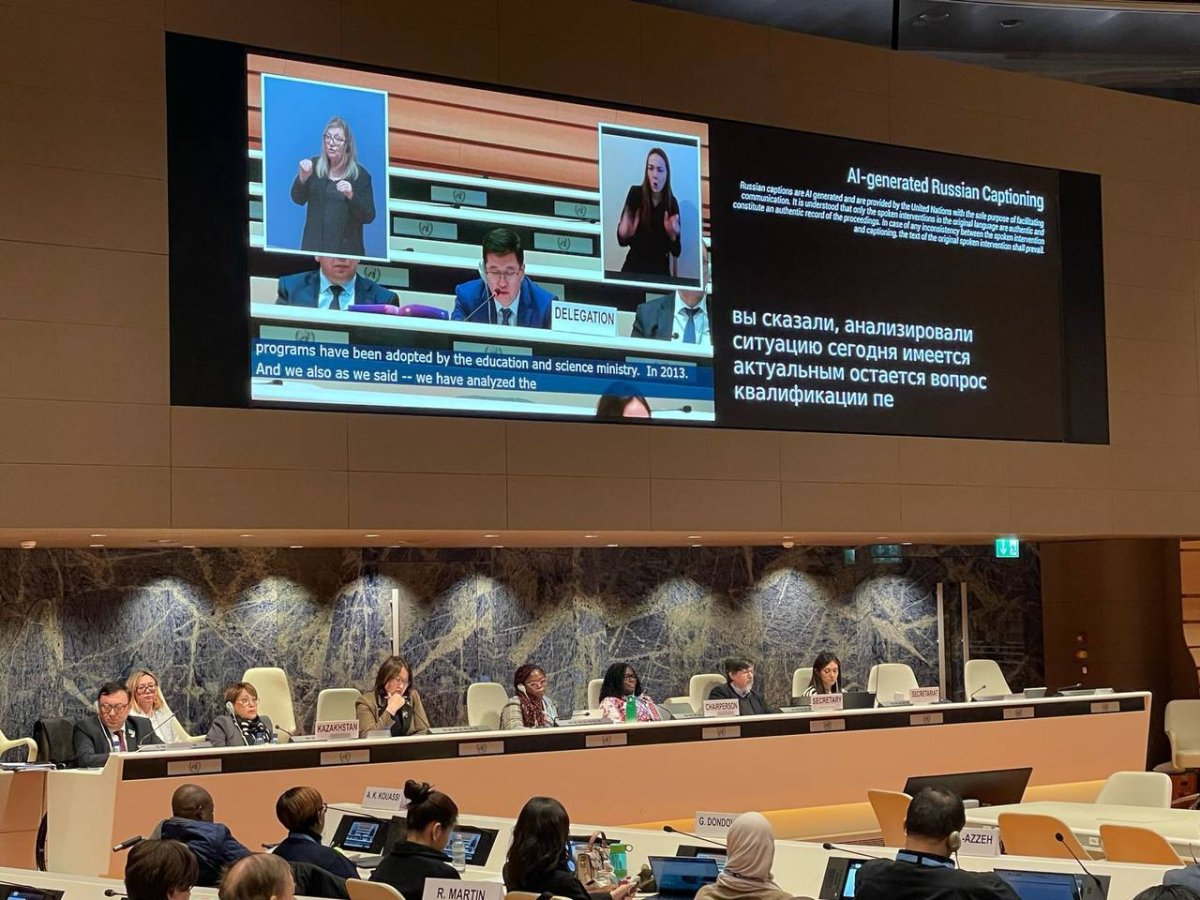ASTANA – More than 86 percent of schools in Kazakhstan have created conditions for inclusive education, Vice Minister of Education Yedil Ospan said at the 30th Session of the UN Convention on the Rights of Persons with Disabilities (CRPD) in Geneva, reported the ministry’s press service on March 5.

Photo credit CCS.jpg
According to Ospan, inclusive education is crucial to the education system. The Kazakh government is making significant efforts to improve accessibility and enhance the quality of education for children with special educational needs.
“The network of special education organizations has increased by 68 facilities. Additionally, 708 school-based inclusion support rooms and 22 resource advisory centers have been established. Approximately 2,500 teaching assistants, 9,700 special education teachers, and more than 12,000 psychological and social educators have been employed. More than 600 special training programs have been developed,” said Ospan.
The minister also announced plans to introduce a national model of a continuous inclusive education system to foster a barrier-free and inclusive environment in educational institutions.
A network of special educational organizations has been established for more than 200,000 children with special needs in Kazakhstan. This comprehensive network includes 44 special kindergartens, 99 schools, 99 psychological, medical and pedagogical commissions (PMPCs), 212 offices of psychological and pedagogical correction (PPCs), 10 autism centers and 13 rehabilitation centers.
Additionally, some children are enrolled in regular secondary schools that offer inclusive conditions.
The Department of Special and Inclusive Education was established under the Ministry of Education in November to ensure the implementation of inclusive education policies across all levels of education.
The Ministry of Labor and Social Protection plans to develop and approve the Concept of Inclusive Policy until 2030 by the end of the year.
